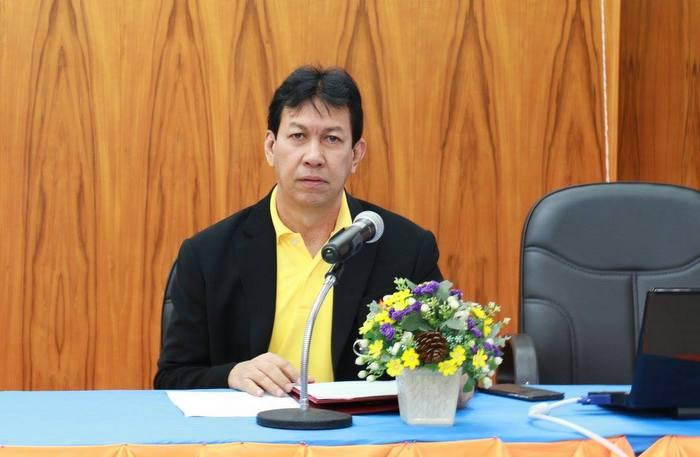Opinion: Government school obstacles

Anurak Rungrueng is the acting director of the Phuket Primary Education Service Office. He took on the position on November 23, after having worked as the deputy director since 2012. He graduated from Thaksin University with a master’s degree in educational management.
Here he calls on the private sector to help shore-up the biggest issues facing government educational institutes.
PHUKET: Government schools face a number of obstacles as they attempt to provide a necessary, high-quality education to their students. The biggest of these is simply a lack of budget to improve facilities and hire more teachers, which is necessary to create smalle classrooms.
Those going to private international schools have access to many more opportunities and learning aids, such as quality libraries, science labs, sporting facilities and so much more. We simply don’t have enough money in our budget to cater to students’ needs in the same way.
The situation at government schools forces teachers to rely on rote-based methods of teaching theory, instead of students being allowed to fine-tune their education based on their own needs and wants.
This is exactly the problem that the Ministry of Education is attempting to solve with the ‘Moderate Class, More Knowledge’ program.
The program gives students between six to seven hours a week outside of the classroom to participate in arranged activities that meet their interests. These activities can be related to music, sport, literature, debate, community service and other fields. It will help them improve academically, in their practical lives or in developing a new skill. This way, students can learn from real-world experiences rather than only from classroom work and theoretical knowledge.
Without a doubt, students will be more likely to be attentive and learn when they are participating in this program, as they have control over what they are learning. When people are fascinated, interested and engaged in something, they not only have more fun, but they genuinely retain more of what is being taught.
This new policy is a step in the right direction and will help to solve some of the problems we face, but not all of them. With the new policy comes a small increase in our budget to help facilitate these additional activities. We have also been given the opportunity to hire a few more teachers to help with practical subjects such as sport, art and vocational training. This does help. However, it is vital for the private sector to also help out.
Phuket is a tourist province that generates enormous amounts of money for the private sector. I think these tourism and hospitality businesses must step up and help shoulder the weight of educating Thailand’s future generations. Donating modern equipment and funding quality facilities is just one of the many ways these companies can help out. If each company makes a small contribution to Phuket’s education system, the overall change will be enormous.
Another way they can help is by supplying staff as volunteer teachers. All major hotels and resorts on the island have native-English speakers. If they came into the classroom, the training that they could give the kids would prepare them for the real world. These businesses could also provide students the opportunity to participate in a ‘Moderate Class, More Knowledge’ program focused on hospitality or other aspects of business on the island.
Not only does this improve our educational system, but it will, in fact, benefit these companies down the line, when they become reliant on a new generation entering the job market. It is a win-win solution.
— Kongleaphy Keam
Leave a Reply
You must be logged in to post a comment.








